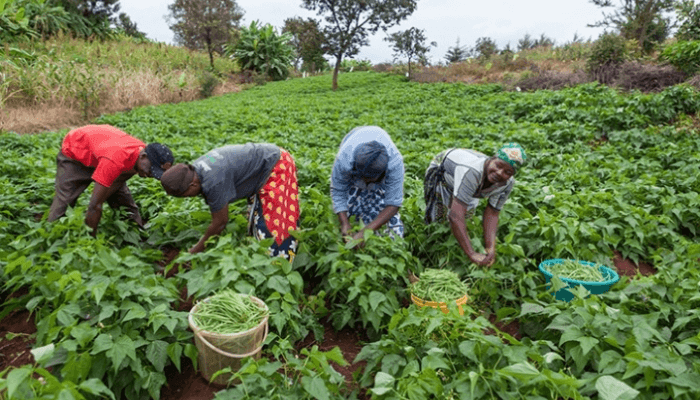Northern Farmers Face Challenges with Border Re-Opening

As borders gradually reopen around the world, Nigeria is no exception. The decision to reopen its borders signifies a step toward economic recovery and the resumption of trade. However, it also ushers in a period of uncertainty, particularly for northern farmers who now face a host of challenges as they navigate this new phase.
The Border Closure and Its Impact on Farmers
In August 2019, Nigeria closed its land borders to curb smuggling and stimulate domestic agricultural production. The move was applauded for its efforts to strengthen the local agricultural sector, but it was not without its controversies.
For almost two years, farmers in the northern regions experienced increased demand for their products and consequently saw improved pricing for their goods. The border closure had significantly reduced the influx of cheaper imported goods, making local agricultural products more competitive.
The Reopening and Its Implications
With the decision to reopen borders, there’s a growing sense of unease among northern farmers. They fear that the influx of cheaper foreign produce will once again pose a challenge to their livelihoods. In a global market, local farmers often struggle to compete with the prices of mass-produced goods from other countries. The reopening of borders potentially exposes these farmers to a surge of imported products.
Another concern is the potential for reduced government support. During the border closure, the government implemented policies that assisted farmers, such as subsidized fertilizers and improved access to credit facilities. With the borders reopening, these support systems may see changes.
The Role of Infrastructure and Technology
For northern farmers to remain competitive, investment in infrastructure and technology becomes paramount. Enhancing the efficiency of the agricultural value chain is essential. Access to better transportation, improved storage facilities, and modern farming practices will allow these farmers to produce higher-quality products and reduce waste.
Additionally, technology can play a pivotal role in increasing productivity. The adoption of modern farming techniques, access to weather data, and the use of mobile applications for marketing and sales can provide northern farmers with a significant advantage.
Collaboration and Market Diversification
Northern farmers can also explore new avenues for collaboration. They may form partnerships with other stakeholders in the agricultural sector, such as agricultural cooperatives, research institutions, and technology companies. Collaboration can help them access information, technology, and markets more effectively.
Market diversification is another approach. Farmers can explore niche markets and speciality crops that are less susceptible to foreign competition. By focusing on quality, local branding, and unique products, they can carve out a niche and command higher prices.
In Conclusion
The reopening of borders brings both opportunities and challenges for northern farmers in Nigeria. While it may expose them to increased competition from cheaper imports, it also opens doors to new markets and opportunities for collaboration. To thrive in this evolving landscape, northern farmers must adapt, embrace technology, and explore innovative solutions to remain competitive and resilient in the face of changing global trade dynamics.
Culled from ABC News

